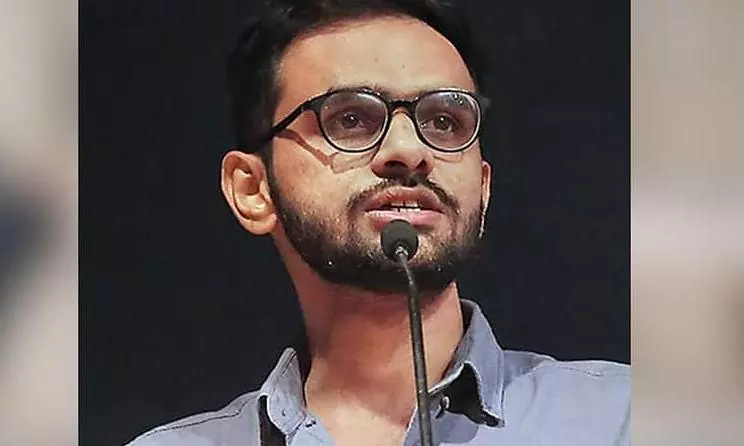
Umar Khalid completes 1000 days in jail: No trials amid calls for his release
text_fieldsNew Delhi: Political activist Umar Khalid, known for his involvement in the protests against the Citizenship Amendment Act (CAA) and the National Register of Citizenship (NRC), has reached a significant milestone today, completing 1000 days in Delhi's Tihar jail.
Khalid, a 35-year-old PhD holder from Jawaharlal Nehru University (JNU), has been charged under the Unlawful Activities Prevention Act (UAPA) by the Delhi Police for allegedly conspiring against the Central Government in connection with the 2020 North East Delhi riots, where 53 people, mostly poor Muslims, lost their lives.
Khalid's arrest, along with several other students and activists, sparked widespread controversy, with many arguing that it was an attempt to suppress the diverse and inclusive nature of the anti-CAA protests. Critics claimed that targeting Khalid, who represented a young, educated, socially aware Indian Muslim, symbolized the resistance against the ruling party's Hindutva ideology.
The denial of bail to Khalid by the Delhi High Court in October 2022 has raised concerns among civil rights activists and the legal community. The court cited his involvement in a WhatsApp group of Indian Muslim students from JNU and his participation in public meetings as potential threats to national security. However, observers have pointed out the lack of concrete evidence presented by the prosecution to support these claims.
During his time in jail, Khalid has remained resilient, and his plight has garnered widespread support from students, civil rights activists, and media personalities. In a show of solidarity, individuals gathered at the Press Club to mark the 1000th day of his imprisonment, emphasizing the importance of democracy, dissent, and freedom of speech.
Speaking at the event, Rashtriya Janata Dal (RJD) leader and Rajya Sabha MP Manoj Jha highlighted the significance of Khalid's resistance, stating that it was a fight not just for him but for all political prisoners. The gathering aimed to shed light on the marginalization of certain communities and the need to challenge dominant narratives.
Senior journalist Ravish Kumar criticized the prolonged judicial process and expressed his disappointment in the Indian judicial system. He emphasized that Khalid's case had become a matter of shame, as the road to justice seemed to be stretched indefinitely.
Renowned economist and Professor Emeritus at JNU, Prabhat Patnaik, described Khalid's continued detention as a personal tragedy and a waste of social talent. He drew comparisons to the freedom fighters of India's past, highlighting the excessive duration of Khalid's imprisonment, which he believed went against the principles of democracy.
Khalid's father, S Q R Ilyas, also present at the event, expressed pride in his son's unwavering spirit and determination. He remarked that the confinement of prison walls had not dampened Khalid's confidence, nor that of his fellow incarcerated activists, who remained resolute in their belief in the cause they fought for.
As Umar Khalid completes 1000 days behind bars, the debate surrounding his case continues to stir public discourse on democracy, dissent, and the importance of preserving fundamental rights in India. The growing solidarity among supporters reflects a belief in the need to address the flaws within the judicial system and protect the principles of justice and equality for all citizens.























